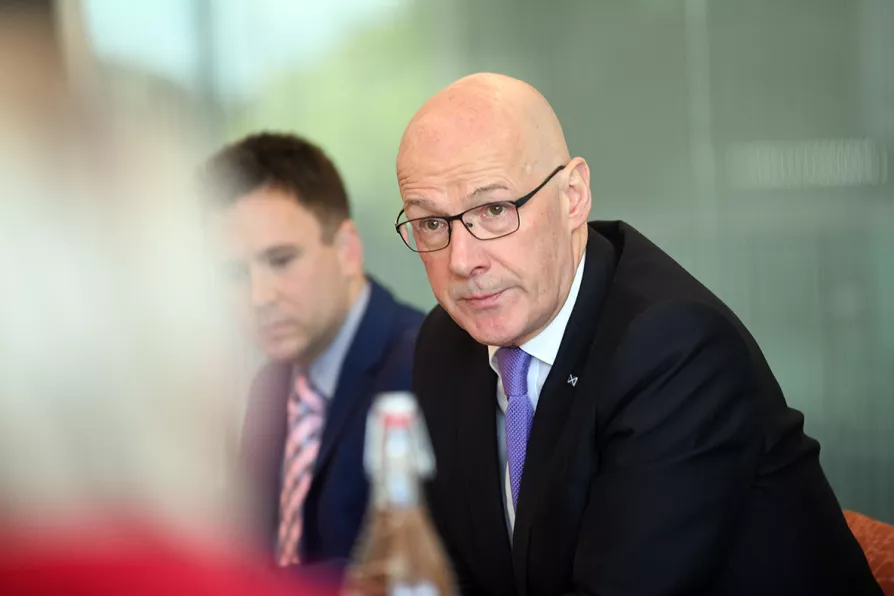CHRISTOPHE DOMEC speaks to CHRIS SMALLS, who helped set up the Amazon Labor Union, on how weak leadership debilitates union activism and dilutes their purpose

 First Minister John Swinney during a visit to Forth Valley College to meet representatives from the Grangemouth oil refinery and local government representatives following Petroineos' decision to decommission its Grangemouth oil refinery, September 13, 2024
First Minister John Swinney during a visit to Forth Valley College to meet representatives from the Grangemouth oil refinery and local government representatives following Petroineos' decision to decommission its Grangemouth oil refinery, September 13, 2024
ON September 5, the Scottish government’s Programme for Government (PfG) set out its four priorities for the years ahead, one of which is “ensuring high-quality and sustainable public services.”
This was delivered by the First Minister without a hint of irony, despite Scotland’s Finance Secretary, just days before, announcing £500 million cuts to public services.
The phrase in the PfG that “investment in public services is not a cost, but a vital investment in our future health, equality and prosperity,” rings very hollow, yet is one that most activists would completely agree with.

Tackling poverty in Scotland cannot happen without properly funded public services. Unison is leading the debate

As Reform UK threatens to capitalise on public anger, our Establishment politicians simply refuse to acknowledge their role in creating the very alienation that gives succour to Farage, writes CRAIG ANDERSON











